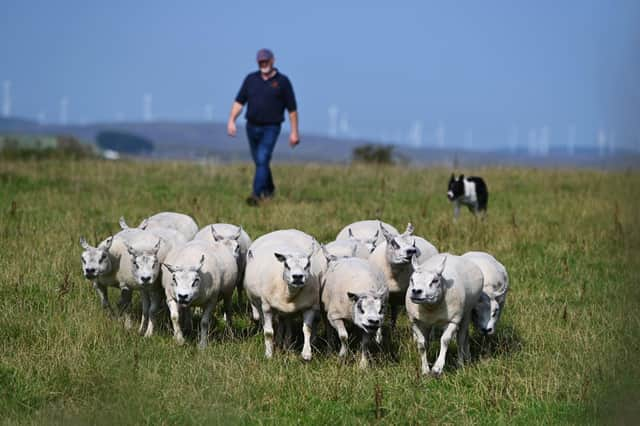Testing is crucial for sheep flocks during sale season


And, launching a new template for quarantine treatments and testing of sheep being brought onto the farm – either from sales or returning from agistment – a panel of vets and scientists yesterday warned that while some costs might be associated with the new precautions, the stakes of not doing so were far higher.
“Buying in stock could have the biggest negative impact on flock health of any move throughout the season,” warned sheep farmer Kevin Harrison who chairs the Sustainable Control of Parasites in Sheep (SCOPS) group, “and at this time of year as sales of breeding and finishing stock take place around the country farmers need to be aware of the threat which bringing animals from other areas onto the farm can represent.”
Advertisement
Hide AdAdvertisement
Hide AdAnd he said that this was the case not only when large numbers were being purchased, but was just as relevant when individual tups were being bought in.
“It’s worth remembering that your purchases could represent a bag of worms and a skin full of parasites.”
Sheep vet Lesley Stubbings said that with so many potential risks to consider when bringing sheep into a flock, SCOPS had created new resources to help vets and advisers better assist their farmer clients.And while sheep scab, worms and liver fluke represented the most widely recognised bought-in health problems, iceberg diseases, fertility issues and lameness were other areas to be considered.
She said that the new six-step guide available on the SCOPS website provided clear steps on parasite risk assessment, finding information on tests and treatments available and best practice.
“Many of the disease threats are not visible so protection relies on a combination of treatments and testing,” said Stubbings.
However she admitted that with so many different parasites to consider, an effective quarantine protocol could look complex and offputting – but with the help of vets or advisers, sheep famers could put a workable, effective plan in place to safeguard their flocks.
She said that quarantine testing and treatment for parasites was complicated due to the spread across the country of scab, worms and fluke resistant to the commonly used treatments and she encouraged farmers to seek expert advice applicable to their own situation.An important new element in the advice was the recommendation to use sheep scab ELISA test, developed at Edinburgh’s Moredun institute.
“The blood test is quick, inexpensive and reliable and can pick up exposure to sheep scab from as little as two weeks after infection,” said Moredun’s Stewart Burgess who stressed that it was important to quarantine the animals and only carry the tests out after they had been on the farm for two weeks rather than straight away.“Preventing sheep from mixing while the test is carried out makes the isolation period vital, but avoids unnecessary treatments while safeguarding the home flock from any incoming sheep.”
Comments
Want to join the conversation? Please or to comment on this article.